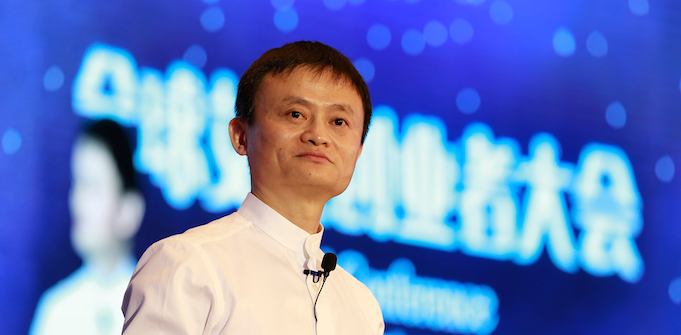
Alibaba founder Jack Ma.
Sometimes the academic high achiever, or even the candidate with the best work experience, isn’t the right person for the job. At least, that was Jack Ma’s attitude to hiring in the early days of e-commerce giant Alibaba.
In the book Alibaba: The House that Jack Ma Built, an excerpt of which was published in Tech in Asia, author Duncan Clark, an entrepreneur and expert on entrepreneurship in China, quotes Ma as saying he has no interest in candidates with business qualifications.
“It is not necessary to study an MBA. Most MBA graduates are not useful … Unless they come back from their MBA studies and forget what they’ve learned at school, then they will be useful,” Ma said.
Instead, Ma’s hiring philosophy focused on wisdom and a strong work ethic. Rather than academic achievement, he placed more value on life experience.
“Because schools teach knowledge, while starting businesses requires wisdom. Wisdom is acquired through experience. Knowledge can be acquired through hard work,” he said.
Alibaba co-founder, Lucy Peng, who was the company’s first human resources director and later chief people officer, is also quoted in the book as saying: “Alibaba employees don’t need experience. They need good health, a good heart, and a good head.”
However, in the excerpt, Clark also notes that Ma thought academic high achievers might become frustrated with the Alibaba way of life.
In those early years, the pay was low, the hours were long, and employees were not allowed to live more than 10 minutes from the office, “so they wouldn’t waste precious time commuting”, Clark writes.
Founded at the peak of the dot-com boom in 1999, Alibaba was fashioned on the offices of Silicon Valley, not Beijing, breaking away from the Chinese tradition of an “emperor-like boss”.
Employees were offered share options, and the focus was on providing quality customer service.
At the time, Clark writes, new technology companies were springing up in Beijing and Shanghai, making tech talent harder to come by and more expensive.
But Alibaba’s relative isolation at the time — the tech giant’s headquarters are still in Hangzhou, where it was founded — meant it had few startup rivals to attract prospective employees, while the lower cost of living meant the company could keep wages relatively low.
“For the price of one engineer in Beijing or Shanghai, Alibaba could hire two,” said Clark.
NOW READ: Alibaba’s future of retail involves QR codes, smart mirrors, and gamified discounts
Passionate about the state of Australian startups? Join the Smarts Collective and be a part of the conversation.


COMMENTS
SmartCompany is committed to hosting lively discussions. Help us keep the conversation useful, interesting and welcoming. We aim to publish comments quickly in the interest of promoting robust conversation, but we’re a small team and we deploy filters to protect against legal risk. Occasionally your comment may be held up while it is being reviewed, but we’re working as fast as we can to keep the conversation rolling.
The SmartCompany comment section is members-only content. Please subscribe to leave a comment.
The SmartCompany comment section is members-only content. Please login to leave a comment.